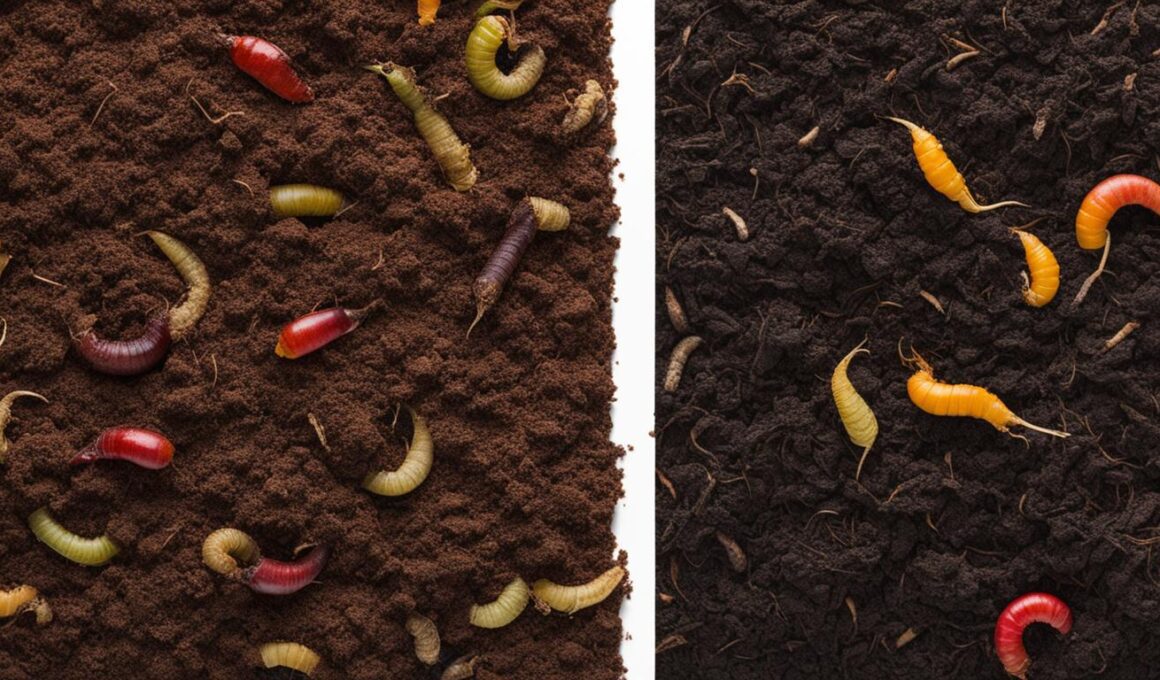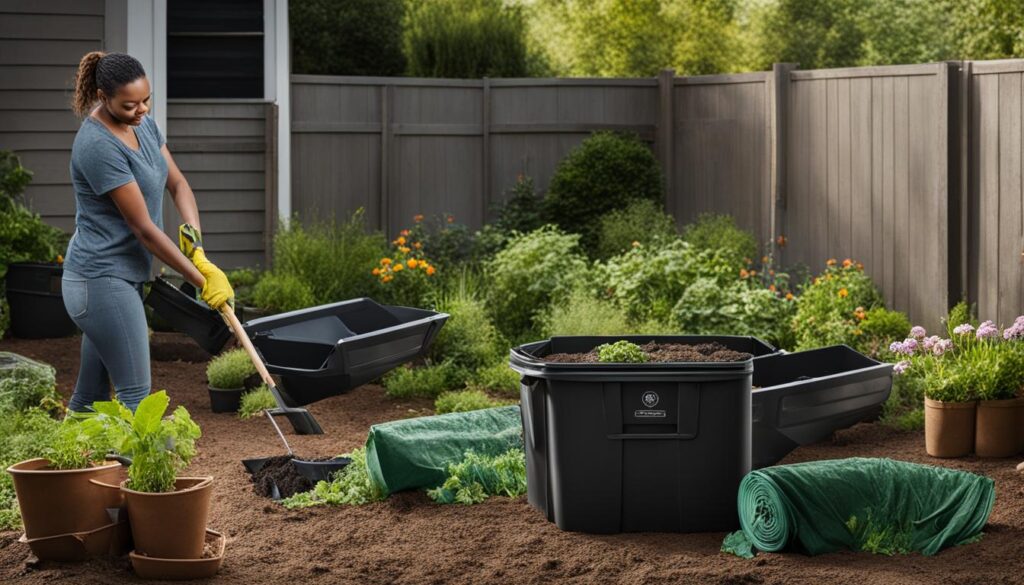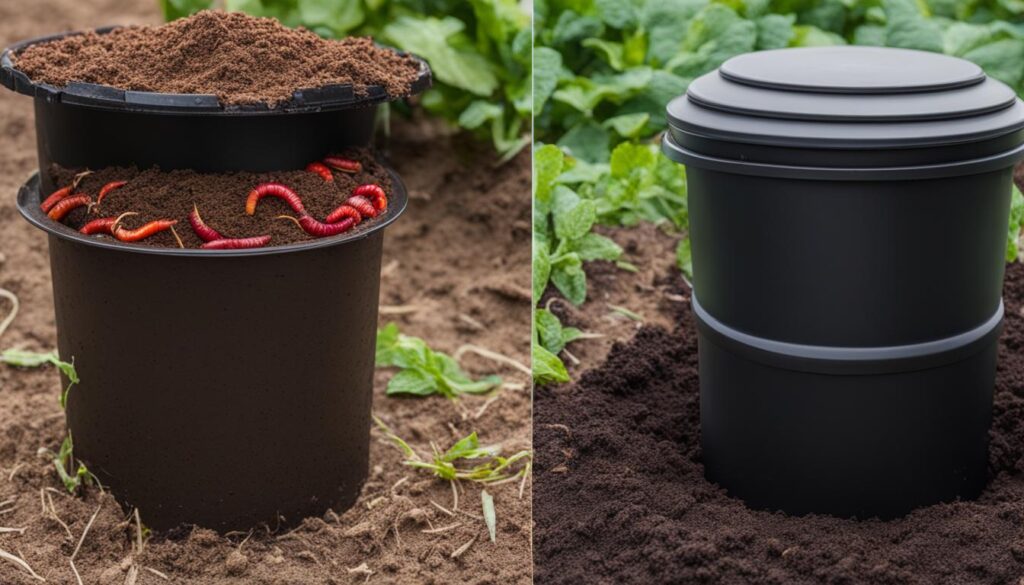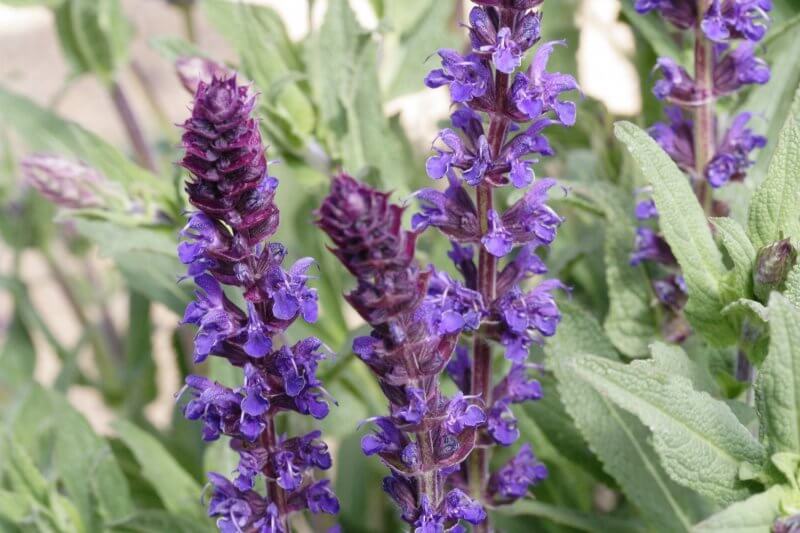Welcome to our comprehensive guide on vermicompost vs compost! If you’re a gardener looking to maximize your yields and nourish your plants naturally, understanding the differences between these two organic fertilizers is essential. In this article, we will delve into the benefits, distinctions, and best practices of vermicompost and compost. By the end, you’ll be equipped with the knowledge to make informed decisions for your garden and unlock the potential of garden gold.
Post Summary
- Vermicomposting and composting are highly effective methods for converting organic waste into nutrient-rich soil amendments.
- Vermicomposting utilizes worms to accelerate the breakdown process, while composting relies on an aerobic process.
- Vermicomposting offers convenience, speed, and suitability for small spaces, while composting can handle larger volumes and has higher pathogen-killing capabilities.
- Choose vermicomposting for faster results and indoor accessibility, or composting for larger-scale operations and enhanced pathogen elimination.
- Ultimately, the choice between vermicompost and compost depends on your specific gardening needs and preferences.
Setting Up Vermicomposting vs Composting
Vermicomposting and composting are two effective methods for breaking down organic waste into nutrient-rich soil amendments. While they both share a common goal, there are differences in their setup and processes. Let’s explore how to set up vermicomposting and composting, and the breakdown of organic matter in each method.
Setting Up Vermicomposting
Vermicomposting involves using worms to accelerate the decomposition of organic materials. To set up a vermicomposting system, you will need an enclosed bin or container to house the worms. Choose a container that is ventilated, has drainage holes, and is spacious enough to accommodate the amount of organic waste you generate.
Place a layer of bedding material, such as shredded newspaper or cardboard, at the bottom of the bin. This provides a comfortable environment for the worms. Then, add a handful of soil to introduce beneficial microorganisms that aid in decomposition.
Next, introduce the worms to the bin. Redworms, also known as red wigglers or Eisenia fetida, are the most commonly used worms in vermicomposting. Begin by adding a small population of worms to the bin and gradually increase the number as they multiply.
Setting Up Composting
Composting, on the other hand, does not rely on worms but rather on the natural breakdown of organic matter. To set up a composting system, you have several options. You can use a compost bin, which can be purchased or DIY, or create a compost pile directly on the ground.
If using a bin, ensure that it has adequate ventilation and drainage to allow for oxygen flow and excess moisture to escape. If using a compost pile, choose a well-drained area in your yard.
When setting up the compost pile, start by laying down a layer of coarse materials like twigs or branches to provide air circulation. Add alternating layers of green materials, such as kitchen scraps and grass clippings, and brown materials, such as dried leaves and twigs. This layering helps create a balanced carbon-to-nitrogen ratio, essential for the breakdown of organic matter.
Comparing Indoor and Outdoor Composting
| Vermicomposting | Traditional Composting | |
|---|---|---|
| Convenience | Can be done both indoors and outdoors | Typically done outdoors |
| Space Requirements | Compact worm bin suitable for small spaces | Larger bin or compost pile required |
| Volume Handling | Smaller volume capacity | Can handle larger volumes |
| Maintenance | Regular feeding and moisture management | Requires less hands-on maintenance |
As shown in the table above, vermicomposting offers the convenience of being able to compost both indoors and outdoors, while traditional composting is typically done outdoors. Vermicomposting requires less space and can be easily adapted to small living areas, making it a convenient option for those with limited space. On the other hand, traditional composting can handle larger volumes of organic material and requires less regular maintenance. Ultimately, the choice between vermicomposting and traditional composting depends on your specific needs and the resources available to you.
Speed of Vermicomposting vs Composting
When it comes to the speed at which you can produce usable compost, vermicomposting takes the lead. This method typically takes 2-3 months to break down organic waste into nutrient-rich soil amendments that can be used in your garden. On the other hand, traditional composting can take 6-9 months to produce compost that is ready to be used.
The key difference in speed lies in the processes involved. Vermicomposting relies on the activity of worms, which efficiently break down organic matter and accelerate the decomposition process. The worms consume the waste, passing it through their digestive system and creating castings or vermicompost as a result. This process is significantly faster compared to the aerobic breakdown that occurs in traditional composting, where microbes and bacteria break down the organic waste over an extended period of time.
Therefore, if you’re looking for a quicker turnaround time in producing usable compost, vermicomposting is the way to go. Its efficiency and speed make it an attractive choice for gardeners who want to see results sooner and make use of the nutrients in their garden.
Comparing the Speed of Vermicomposting and Composting
Here’s a table that summarizes the speed of vermicomposting and composting:
| Method | Time to Produce Usable Compost |
|---|---|
| Vermicomposting | 2-3 months |
| Composting | 6-9 months |
As you can see, vermicomposting offers a quicker turnaround time, allowing you to benefit from nutrient-rich compost in just a couple of months.
“Vermicomposting can be likened to a sprint, while composting is more of a marathon. Both methods have their advantages, but if time is a crucial factor for you, vermicomposting is the clear winner.” – Gardening Expert
Volume and Pathogen Handling in Vermicomposting vs Composting
Volume handling is an important consideration when choosing between vermicomposting and composting. While composting can handle any amount of organic material, vermicomposting has limitations on the volume it can effectively handle. Excessive amounts of organic waste in a vermicomposting bin can lead to issues such as bad odors and the death of worms. It is important to strike a balance and feed the worms a manageable amount of kitchen scraps and yard waste.
When it comes to pathogen handling, composting has an advantage. The high temperatures reached during hot composting can effectively kill pathogens, making the resulting compost safer to use. Vermicomposting, on the other hand, runs at cooler temperatures and may not effectively eliminate all pathogens. Therefore, if pathogen control is a priority, composting may be the better choice.
Volume and Pathogen Handling Comparison
| Vermicomposting | Composting | |
|---|---|---|
| Volume Handling | Limited volume due to worm bin size | Can handle any amount of organic material |
| Pathogen Handling | May not effectively eliminate all pathogens | High temperatures during hot composting kill pathogens |
It is important to note that both vermicomposting and composting have their strengths and weaknesses when it comes to volume and pathogen handling. The choice between the two methods will depend on the specific needs and circumstances of the gardener. Consider the amount of organic waste you generate and your priorities in terms of pathogen control. By making an informed decision, you can ensure that your gardening practices align with your goals and requirements.
Now that we have explored the volume and pathogen handling aspects of vermicomposting versus composting, it is time to move on to the conclusion of our guide. We will summarize the benefits and key points of both methods, empowering you to make the best choice for your gardening journey.
Conclusion
In conclusion, both vermicomposting and composting offer unique benefits for gardeners. Vermicomposting provides convenience, speed, and the ability to compost in small spaces. With vermicomposting, you can easily turn your kitchen scraps into nutrient-rich soil amendments, whether you live in an apartment or a house with limited outdoor space. It is a great option for those looking for a low-maintenance composting method.
On the other hand, composting excels in handling larger volumes of organic material. It is suitable for gardeners with large yards or those who generate a significant amount of yard waste. Composting also has higher pathogen-killing capabilities, making it a preferred choice for those concerned about the presence of pathogens in their compost.
The choice between vermicomposting and composting ultimately depends on your individual needs and preferences. If you value convenience and speed, vermicomposting may be the right choice for you. However, if you have a large volume of organic waste or are concerned about pathogens, composting may be the better option.
Regardless of which method you choose, both vermicomposting and composting will contribute to the health and fertility of your garden. They are both excellent ways to recycle organic waste, reduce landfill waste, and create nutrient-rich soil amendments for your plants. Start composting today and enjoy the benefits of vermicompost or compost in your garden.
FAQ
What is the difference between vermicomposting and composting?
Vermicomposting uses worms to break down organic waste, while composting relies on an aerobic process.
What materials can be used for vermicomposting and composting?
Suitable organic waste materials such as kitchen scraps and yard waste can be used for both methods.
Can vermicomposting be done indoors?
Yes, vermicomposting can be done both indoors and outdoors.
Which method is faster in producing usable compost?
Vermicomposting typically takes 2-3 months, while composting can take 6-9 months.
Can composting handle large-scale operations?
Yes, composting can handle any amount of organic material, making it suitable for large-scale operations.
Which method is better at killing pathogens?
Hot composting is more effective at killing pathogens due to its higher temperatures.
Can Vermicompost or Regular Compost Help Neutralize Acidic Soil in My Garden?
Vermicompost and regular compost can both help neutralize acidic soil in your garden. When identifying acidic soil characteristics, look for stunted plant growth, yellowing leaves, and a low pH level. Adding compost to your soil can help increase the pH and create a healthier environment for your plants.










